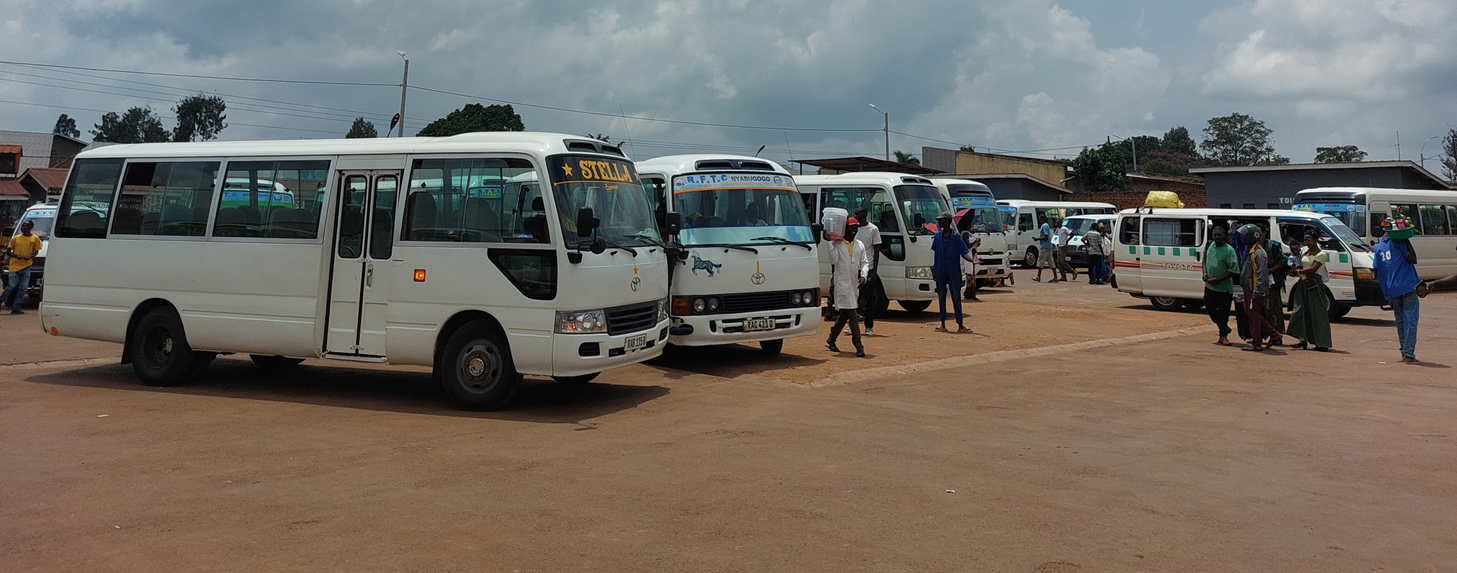On the importance of decarbonising paratransit to achieve net-zero Cities in the Global South

The journey to achieving net-zero emissions in cities across the Global South is intricately tied to the decarbonization of paratransit systems. In many cities within this region, such as Douala and Yaoundé, Cameroon; Dakar, Senegal; and Accra, Ghana, paratransit services—including minibuses and shared taxis—constitute over 80% of public transportation.
The extensive reliance on paratransit systems underscores the sector’s significant impact on urban air quality and greenhouse gas emissions. Addressing paratransit's environmental footprint is not merely beneficial but essential to realising net-zero goals.
“The electrification of smaller capacity vehicles, such as 2- and 3-wheelers, as well as full-size buses, has gained much momentum around the globe and is increasingly doing so in Africa. However, the same cannot be said of paratransit minibuses, the dominant form of public transport in most Sub-Saharan African countries.” – reported Marleen Spellenberg, Mateo Gomez, Rohan Modi from GIZ.
The topic of minibus electrification was discussed at the event "Mobilize Net-Zero: Regional Exchange on Minibus Electrification in Africa". The 3-day exchange, from 11 to 13 June, was hosted by MobiliseYourCity, GIZ, VREF, and TUMI. The event emphasised the importance of creating enabling conditions for minibus electrification and fostering further dialogue and projects to support the transition. Find out all the details of the event and the enriching Opportunities and Challenges of Electrifying the Minibus Sector in Africa in this article.
Participating cities like Lagos, Kumasi, and Nairobi discussed the current state of their paratransit systems and explored electrification’s potential to reduce pollution and enhance public health. Kumasi’s experience with its Sustainable Urban Mobility Plan (SUMP) and paratransit reforms demonstrates the promise and challenges of transforming these crucial transport networks.
A significant advantage of transitioning to electric paratransit is its potential to lower air pollution levels drastically. This not only improves urban air quality but also alleviates related health problems. Moreover, electrification offers a chance to formalise and professionalise the sector, which can lead to better service and job creation. However, challenges persist, notably the fragmented nature of the paratransit sector and the need for cohesive stakeholder engagement.
For example, Stellenbosch University in South Africa conducted a notable pilot project on retrofitting internal combustion engine vehicles into electric ones. This project emphasised local industry involvement and worker training, highlighting the broader implications for sector-wide decarbonisation.
MobiliseYourCity and its partners are actively addressing these challenges by facilitating knowledge exchange and collaborative planning. The goal is to enhance the capacity of public officials and stakeholders to implement effective decarbonisation strategies. By learning from local and global experiences, the Partnership aims to foster successful urban mobility planning incorporating paratransit electrification.
With a concerted effort to decarbonise paratransit, achieving net-zero emissions in Global South cities is attainable. The sector’s pivotal role in urban transportation systems means its transformation is a prerequisite for broader climate action goals.